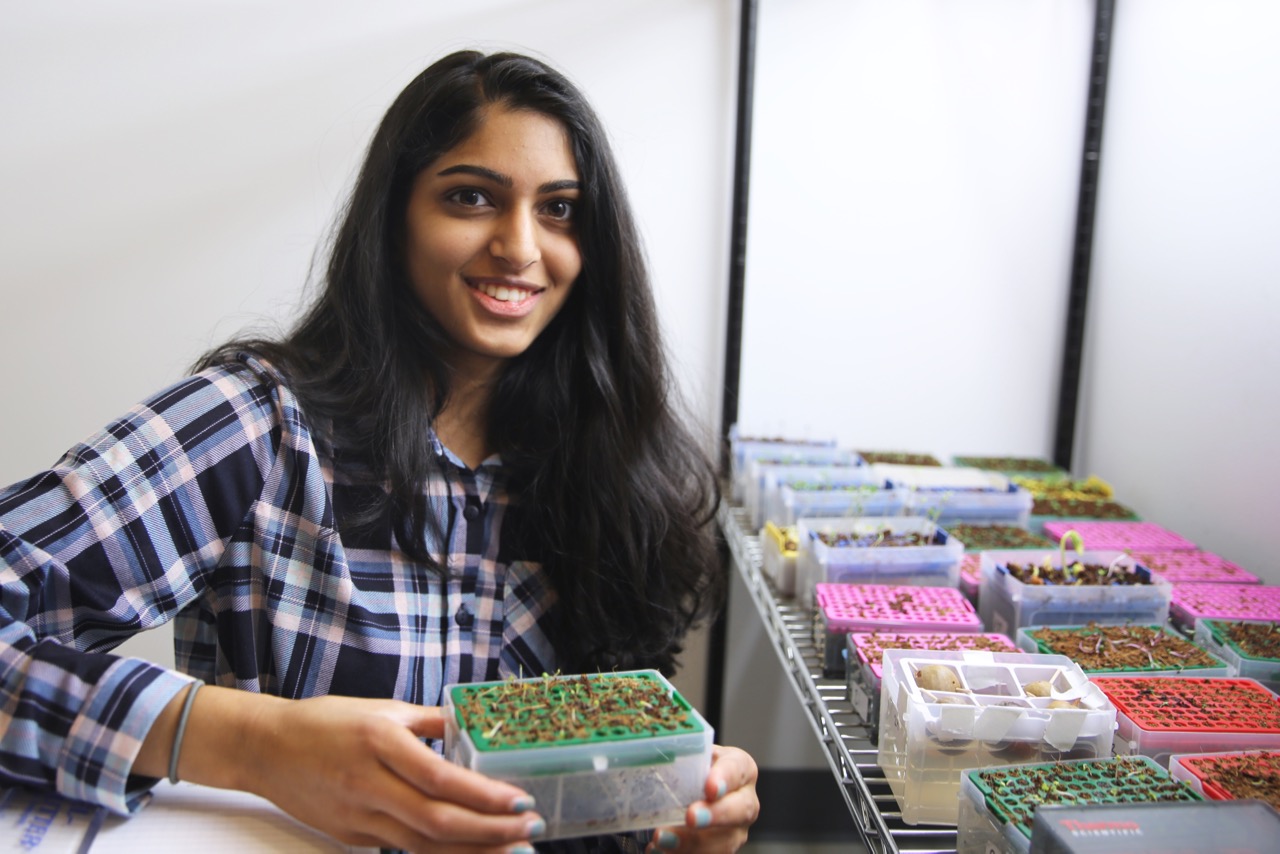
08 Nov 2016 Ambassador: Radhika Dalal
Radhika Dalal
Kamiak High School
Mukilteo, WA
Author of Hit the Ground Funding!
Future career goals
Research scientist or engineer in the biology field
Description of your school/organization where you plan to integrate this project
This program will be serving Kamiak High School in Mukilteo, Washington. Mukilteo is a suburb near the rising technological hub of Seattle. Mukilteo relies on the development of STEAM (Science, Technology, Engineering, Arts, and Mathematics) related industries, and a major economic contributor and industry is the aviation manufacturing company, Boeing. As Mukilteo is close to the base of such innovative industries, encouraging the talented body of students to focus on issues regarding sustainability has the potential to create impressive results.
Kamiak itself is home to high-achieving students, with more than 95 percent averaging reading and math scores that exceed state standard as well as a four-year graduation rate of 92.7% among a student body of over 2,000.
What originally made you interested in this project?
Being a part of the Institute for Systems Biology’s PF1010 Internship, I realized how food security was an issue that has been growing exponentially in the past few years. I learned there about how important it is to have a food source that uses little water and land, the solution to which is an aquaponics system. Aquaponics systems may be what urban agriculture becomes widely known as in the new few decades, so introducing the idea from now to students allows it to be perfected over time. This is why having an aquaponics system at Kamiak is important to me, and will likely be important knowledge for students to have in the future.
Why do you want to bring this project to your school/community center/organization? What are your objectives?
I would like to bring this project to my school in order to encourage students to work towards a common goal. Aquaponics systems require more than just one person running it, and need a team to keep a successful system. Having a project such as this would not only be informational and meaningful, but it would also help develop students’ soft skills by requiring teamwork to create and maintain a system.
What is your plan?
Plan: Introduce the aquaponics system as an after-school club. Likely through the AP Biology class at Kamiak (we do not have an AP Environmental Science class)
Steps:
1. Find an advisor/ gain faculty support (likely a Biology instructor)
2. Register as a club
3. Market the club
4. Set up aquaponics system
5. Meet biweekly to discuss and monitor system (perhaps set up challenges for further applications with the aquaponics systems)
6. End of the year: present results in classes or in front of a guest for the club
Objectives:
-Create a project that multiple students can work on and learn from
-Provides an application to the Biology that students have learned
-Students can learn about food security crisis and learn about how hydroponics/aquaponics systems are helping
-Learn about important topics in budgeting and funding
Plan with the club: Biweekly or monthly meetings where I can teach students who attend on lessons from the ISB curriculum. At the meetings, we would also learn about subtopics that are important to the process (funding, leadership, websites).
Afterward, we would monitor the aquaponics system (set up in the first few meetings).
What challenges do you think you will face in getting this set up?
-Getting an advisor: asking a teacher to put in time for an initiative after-school is difficult at my school.
-Authority permission: Kamiak’s vice-president, who authorizes clubs is generally quite skeptical with the idea of bringing a new club to the school, especially if it includes costs. ASB’s budgeting rules are very strict
-Finding students who would like to work on this project (with so many options for clubs, marketing this as the most appealing may prove to be difficult)
Watch Radhika’s TEDx talk, where she tells the story of how technology and social media have impacted how her generation connects, builds relationships and approaches higher education as a pathway to careers that have social impact.

